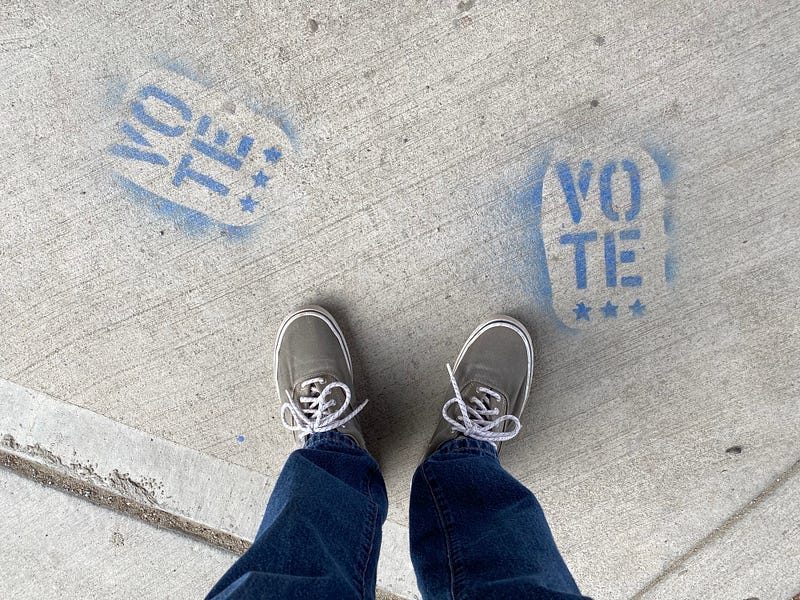An Argument Against Term Limits for Elected Office
While on the surface, term limits may appear attractive, they undermine the importance of elections and promote voter apathy.

Term limits have become a popular topic among some elected officials and voters over the past few years.
Claiming they promote accountability, prevent corruption, and encourage fresh perspectives in government, some propose firm, prescribed limits, such as delineated in the 22nd amendment to the Constitution confining the office of President of the United States to two terms.
It sounds like a good idea.
After all, some industries impose mandatory, or forced, retirement when employees reach certain ages.
While some may look at a Joe Biden, a Steny Hoyer, a Bernie Sanders, and think it’s about time they step aside to make room for younger, more energetic blood, this argument fails to take into account the potential drawbacks of limiting the number of terms elected officials can serve.
A main reason term limits are problematic is they deny voters the right to choose their representatives. With voter suppression and straight-up apathy, voter turnout in America is already precarious. Restricting the number of times an elected official can run for office reduces voters’ available options.
Why would voters bother showing up at the polls if the person they might want to vote for is prohibited from running again? Might as well stay home.
This is especially problematic in cases where an incumbent has been doing a good job — “bringing home the bacon” in political parlance — and is widely popular among his or her constituents.
Being re-elected should seem like a reward and an incentive to continue. Requiring an incumbent to step aside may cede ground to a less desirable candidate who does not reflect constituents’ views and may potentially do a worse job. Voters would be forced to choose from a pool of less experienced and/or less qualified candidates.
If we need proof of this, consider how many times Franklin Roosevelt was elected before the 22nd amendment existed — four.
We can only imagine what the country would have been like had he been required to step down in 1941 after two terms. Pearl Harbor would have happened on another’s watch; Winston Churchill and Josef Stalin would have had to work with someone possibly less shrewd and less experienced while fighting to defeat the Axis powers during World War Two.
Ask the voters of Vermont what they think of Sen. Bernie Sanders, whose 2018 re-election garnered 67.3% of the vote.
Term limits can also lead to a loss of institutional knowledge and experience within government. Experienced politicians who have been in office for a while have accumulated valuable perspectives and insights crucial to making informed policy decisions. By imposing term limits, we encourage short-term thinking and undermine the long-term planning necessary for effective governance. Term-limited elected officials may be more focused on achieving quick wins and building their own legacies rather than on decisions that will benefit their constituents over the long term.
Finally, and probably the most uncomfortable, is the influence of money in politics.
Term limits can lead to an over-reliance on unelected bureaucrats and special interest groups, aka “lobbyists”. Since the Supreme Court has determined “money is free speech” and “corporations are people,” term-limited elected officials may be more susceptible to unelected bureaucrats and lobbyists with more experience in “how Washington works”. This can lead to a greater lack of accountability and erosion of democratic principles.
This isn’t to suggest term limits should be completely eliminated from the equation, however. They should not be implemented for elected office. For appointed offices, though, they should absolutely be imposed.
Two years ago, Rep. Ro Khanna introduced a bill intending to limit United States Supreme Court justices with current lifetime appointments to 18-year terms.
The only say the American people have in who serves on the nation’s highest court is in who they elect as president. Again, through elections.
Not every president gets to appoint SCOTUS judges, however.
No justices retired during the tenure of our 39th president, Jimmy Carter. Donald Trump, though, got to appoint three justices, who are radically influencing the court’s direction.
Presidents also appoint federal circuit court judges, also not subjected to term limits or elections.
Where is the logic in electing a president limited to two terms with the authority to appoint (with the Senate’s advice and consent) circuit court and SCOTUS justices without any term limits?
The president who appoints them must face voters; the judges do not. The president who appoints them must vacate the White House after two terms; judges are safe for life.
It’s no surprise that most of the lawmakers suggesting term limits are republicans, the same ones who seek to permanently undermine voting rights in America through extreme partisan gerrymandering, voter I.D. laws, voter role purges, and closing of polling stations.
It’s the only way they win, after all.



